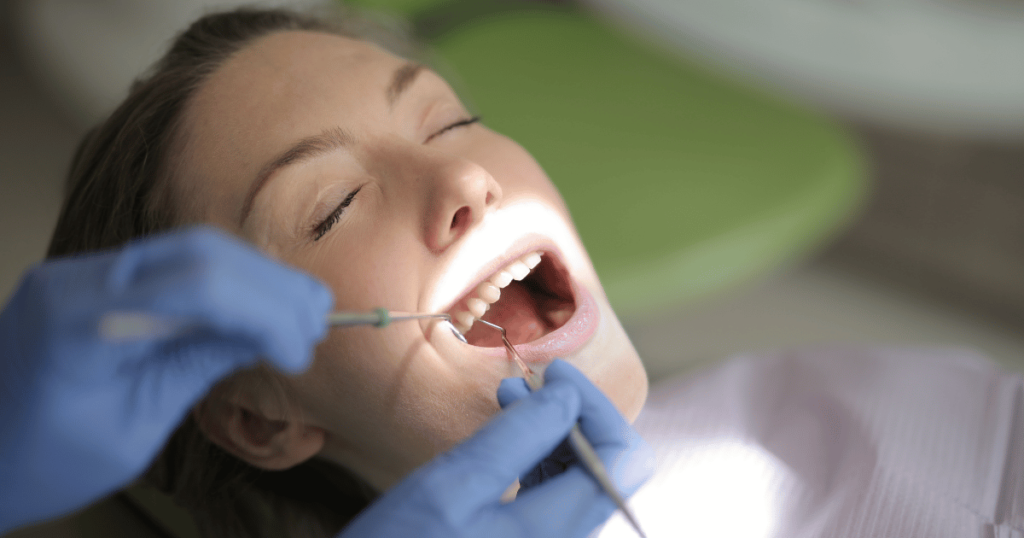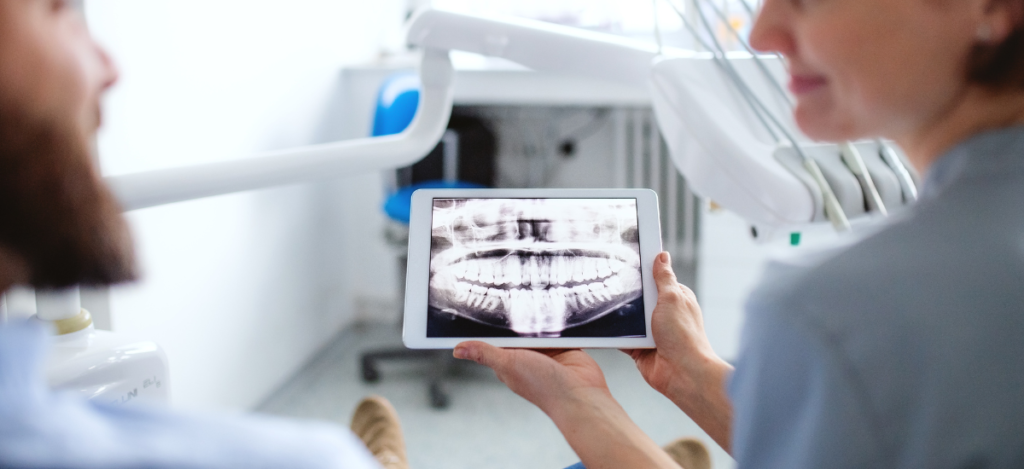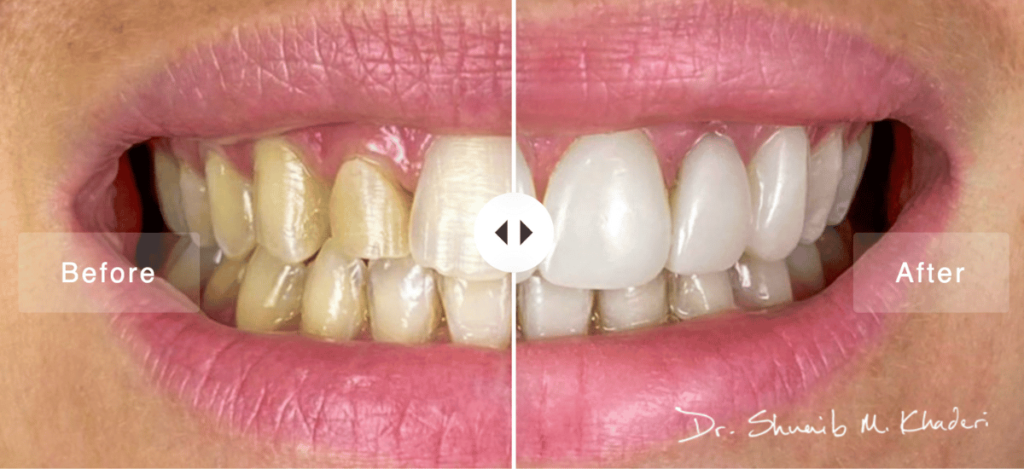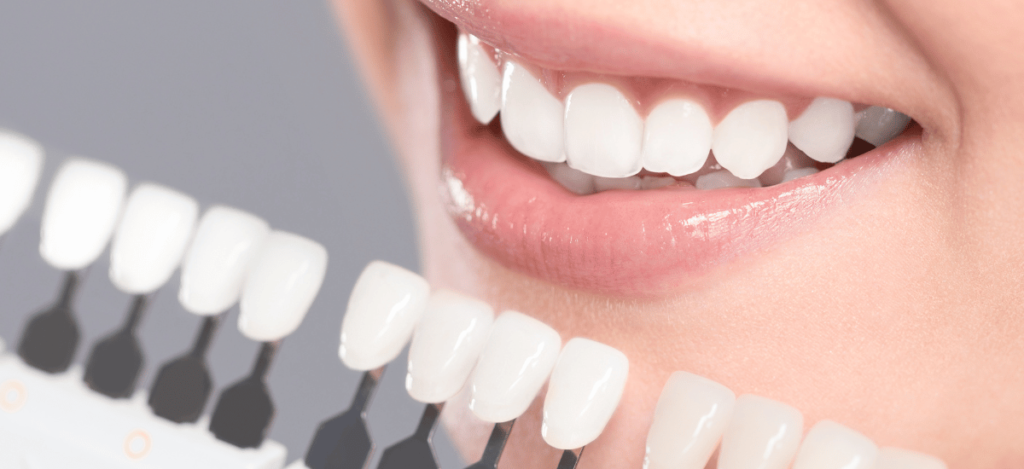We all know the importance of regular brushing and flossing. But when was the last time you treated your teeth to full dental cleaning?
When did you last give your teeth a deep clean?

Consider the difference between taking your car to the local carwash every fortnight and getting it serviced and detailed. Washing keeps it looking respectable but servicing and detailing helps maintain good function and adds the “wow” factor.
It’s the same with teeth cleaning. Regular cleaning is not only essential for appearance and oral health. It can also help maintain ordinary function and overall health and well-being.
So, let’s take a look at what dental cleaning is, why it’s so important, what happens when you book an appointment at a dental clinic in Abu Dhabi — and what else you may be able to do to improve your smile and oral health.
What is dental cleaning?
Dental cleaning is a routine procedure but one that should be performed by a licensed dentist or dental hygienist.
Its main purpose, as the name suggests, is to clean the teeth and improve oral hygiene. The side benefits are obvious in the shape of more sparkling teeth, a brighter smile and fresher-smelling breath.
The dental cleaning process revolves around scaling and polishing the teeth. It removes stubborn plaque and tartar that tend to build up on the tooth surfaces and along the gum line.
During the process, the dental hygienist uses specialized tools designed to target and remove plaque and the tartar. Regular cleaning doesn’t necessarily whiten the teeth. However, it can fade or remove unsightly tooth stains on both the inside and outside of teeth, enhancing their appearance as dentists clean away the tartar.
What happens during dental cleaning?
Dental cleaning is a standard dental procedure that your dentist or oral hygienist has likely performed hundreds or even thousands of times before.
During your first appointment at our Abu Dhabi dental clinic, we’ll ask you to rinse your mouth with cold water. After that, we’ll conduct a physical examination of your mouth, head, and neck area. We do this to check for any abnormalities, including in the jaw and lymph nodes, and to assess the overall state of your oral health.
The dentist will use a mirror to check the inside of your mouth for broken fillings, cavities, cracked teeth, signs of gum disease, and any early signs of oral cancer.
An x-ray of your mouth may be taken on your first visit, if necessary — before the cleaning stage begins.

During cleaning, your dentist will use tools specifically designed to meticulously and carefully remove plaque and tartar buildup from the surface of (and between) your teeth.
During regular cleaning, dentists remove plaque and tartar on teeth above the gum line. For deeper cleaning below the gum line, they might use scaling and root planing procedures (see below) to clean the pocket areas between the teeth and gums and address gum inflammation.
Teeth are usually polished using a special dental paste and a high-powered dental brush (or air polisher). This will help protect and improve the appearance of the teeth and remove residual stains, making the surfaces of teeth smoother, which in turn makes it harder for plaque to reattach and reaccumulate.
You will be asked to rinse and spit out any excess saliva during the procedure and dental floss may be used by the dentist for additional cleaning.
The dentist will be able to tell quite a lot about your oral hygiene and lifestyle from the dental cleaning process. Once the examination is done, the dentist might suggest positive changes you can make to your cleaning routine to maintain healthy teeth and gums. They will also let you know if you need any dental work to address issues like cavities or to prevent future oral hygiene problems.
Why regular dental cleaning should be a priority
Everyone wants a healthy and bright smile. Keeping away from sugary foods and the like helps that — but it won’t necessarily prevent a gradual decline in oral health and the appearance of your teeth unless you visit your dentist regularly for cleaning.
Even with the healthiest diets, teeth can retain dental plaque, which is a sticky and colorless film that (if not removed) combines with minerals from saliva to harden and form stubborn tartar. This calcifies and firmly adheres to the surface of teeth.
Its rough texture provides a perfect environment for more plaque to accumulate, further exacerbating the problem.
The impact of plaque and tartar
Oral bacteria feed on sugars and starches from the food we consume and produce acids as a by-product. These acids attack the tooth enamel, the protective outer layer of the teeth. This can lead to the erosion of minerals and the formation of tiny holes in the enamel surface (tooth decay) as well as gum decay.

If plaque bacteria accumulate near the gum line, they can irritate gum tissues, leading to inflammation, tenderness and redness in the gum area.
It’s easy to see., therefore, how the failure to adequately remove plaque and tartar affects dental health on several levels. It can also negatively impact overall physical health and one’s appearance.
Brushing or flossing your teeth alone does not remove tartar. You need professional dental cleaning with specialist equipment to remove these tenacious deposits.
Regular cleaning will help to improve the quality of your teeth and breath while preventing tooth decay and gum disease. It can also help identify serious oral health problems like mouth cancer before they develop. Early detection of cancer is key to effectively treating it and making a full recovery.
The positive results of regular teeth cleaning can even have a psychological effect by boosting self-esteem and confidence.
What can happen if you ignore dental cleaning?
If you ignore regular dental cleaning, it can lead to more than bad breath (halitosis) and unsightly stains on your teeth. The build-up of plaque and tartar on teeth and gum surfaces can potentially lead to the following more serious health issues:
- Increased risk of cavities and fillings. When you allow plaque to accumulate, bacteria from acid buildup destroy the enamel, leading to tooth decay.
- Gum disease: the presence of bacteria in plaque and tartar can irritate the gums, causing them to become inflamed, red and swollen. If not treated, gingivitis can lead to periodontitis, which causes the gums to recede.
- Tooth loss or even bone damage. Gum disease often leads to serious oral problems because of the destruction of the supporting structures for teeth.
- Increased risk of chronic illness. Surprisingly for some, poor oral health has a close link to overall health. It can increase the risk of several chronic illnesses such as heart disease, diabetes, and respiratory infections. Oral problems can also relate to pregnancy complications.
- Loss of confidence in one’s appearance. Missing teeth or bad breath can cause a lack of confidence, as well as difficulties with chewing food.
How often should you schedule dental cleaning?
With the many benefits of dental cleaning, you may be wondering how often you should visit your dental clinic in Abu Dhabi for the procedure.

Dentists generally recommend that patients schedule teeth cleaning at least every six months (twice per year). During appointments, your dentist can check for other oral issues. If found, he will let you know if anything needs attention as well as perform the cleaning procedure.
Sometimes, when you visit the dentist for another procedure, they perform basic dental cleaning at the same time.
Other common dental procedures to maintain oral health
Dental cleaning is a relatively simple procedure — like “detailing” for the mouth, to use the earlier analogy. And extending the analogy further, if dentists detect problems, they might need to make “repairs” to maintain optimal oral health.
Other related dental procedures include the following:
Scaling and root planning
Scaling and root planning are deeper, intensive, more targeted types of cleaning for the teeth and gums. It addresses gingivitis or the early stages of gum disease (inflammation of the tissues surrounding the teeth) as well as tartar buildup.
This procedure goes beyond the normal scope of regular dental cleaning. It meticulously cleans not only the tooth surfaces but also the hidden spaces beneath the gum line and tooth roots.
Dentists design scaling and root planning to stop gum disease from turning into full-blown periodontitis. In periodontitis, gum tissues pull away from the teeth, creating pockets that can easily harbor bacteria, plaque, and tartar.
A periodontist usually performs this procedure, often using specialist equipment like ultrasonic scalers and hand instruments, to clean the hardest-to-reach areas of the mouth.
Teeth whitening
The process of enhancing the brightness of your teeth either by bleaching (peroxide removes deep and surface stains) or with a non-bleaching whitening product that contains substances that remove surface stains only.

Teeth will become several shades lighter, but the process might not give you bright white teeth.
Teeth whitening is available in two methods: home and in-office procedures.
Home products may be provided by a dentist or purchased over the counter. These are usually based on custom-made trays and whitening gels. Be careful that the product you apply is not too abrasive for your teeth — it’s best to seek the supervision of a dentist before embarking on a home-based whitening program.
If in doubt, visit your dentist and undergo whitening procedures in the dentist’s chair with a series of appointments.
Fluoride treatment
Your dentist might recommend fluoride treatment if you consistently get cavities.
Bacteria, plaque, and acids can eat away the protective enamel on the outer layer of your tooth, leading to cavities through a process of demineralization.
Fluoride adds minerals to the protective layer and strengthens the tooth enamel, making it more resistant to decay from acid attacks. For this reason, dentists might recommend and administer fluoride treatment after dental cleaning.
Fissure sealants
Dentists might apply fissure sealants to the chewing surfaces of molars and premolars to stop plaque and bacteria from accumulating.
This is an effective long-term preventive measure against cavities, especially for children and teenagers.
What’s the typical price for teeth cleaning in Abu Dhabi?
Booking regular dental cleaning (at least twice per year) is an essential step in maintaining good oral health. It will prevent a wide range of dental issues.
The cost of dental cleaning in Abu Dhabi starts at around AED 250 but can be as much as AED 750-800. It depends on the extent of cleaning required and the expertise of your dentist. Looking for optimal oral hygiene and a brighter smile from teeth cleaning or whitening in Abu Dhabi? Book an appointment with one of our professional dentists at the International Center for Dental Excellence (ICDE).
